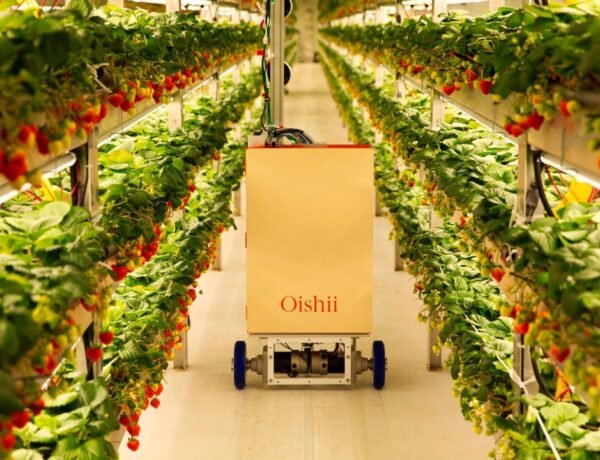Emphasis on Sustainable and Eco-Friendly Business Practices: A Shift Toward Green Innovation
As consumers become more environmentally conscious, businesses are prioritizing sustainable and eco-friendly practices. From reducing carbon footprints to implementing ethical supply chains, companies are integrating sustainability into their core strategies. Organizations that align with environmental values gain a competitive edge, attract loyal customers, and contribute to a healthier planet.
The Growing Consumer Demand for Sustainability
Modern consumers prefer brands that demonstrate a commitment to sustainability. Surveys show that a significant percentage of buyers are willing to pay more for eco-friendly products. As a result, businesses are shifting their focus to sustainable practices to meet customer expectations and build brand loyalty.
Offering Green and Sustainable Products
Companies are developing eco-friendly products using sustainable materials and ethical production methods. This includes biodegradable packaging, plant-based alternatives, and products made from recycled or upcycled materials. Green product innovations not only benefit the environment but also attract eco-conscious consumers.
Reducing Carbon Footprints Across Industries
Many industries are actively reducing their carbon footprints by minimizing emissions, optimizing energy consumption, and investing in renewable energy sources. Businesses in manufacturing, fashion, and technology are adopting cleaner production processes to align with global sustainability goals.
Implementing Sustainable Supply Chains
Sustainability efforts extend beyond product development to supply chain management. Companies are working with ethical suppliers, reducing transportation emissions, and using eco-friendly packaging. A transparent, sustainable supply chain enhances brand reputation and meets regulatory standards.
The Role of Renewable Energy in Business Operations
Businesses are investing in renewable energy sources such as solar, wind, and hydroelectric power. Transitioning to green energy reduces reliance on fossil fuels, lowers operational costs over time, and contributes to a cleaner environment. Many companies are also adopting energy-efficient technologies to cut waste.
Eco-Friendly Packaging Solutions
Reducing plastic waste is a major focus for businesses embracing sustainability. Brands are switching to compostable, biodegradable, and reusable packaging to minimize environmental impact. This shift is particularly significant in the e-commerce and food industries.
Circular Economy: Recycling and Upcycling in Business
The circular economy model encourages businesses to design products with reusability in mind. Companies are launching take-back programs, repurposing materials, and finding innovative ways to recycle products. This approach minimizes waste and extends product lifecycles.
Ethical and Sustainable Business Certifications
Sustainability certifications such as Fair Trade, B Corp, and LEED (Leadership in Energy and Environmental Design) are becoming industry benchmarks. Businesses that achieve these certifications gain consumer trust and demonstrate their commitment to environmental and social responsibility.
Water Conservation and Waste Reduction Initiatives
Businesses are implementing water-saving strategies and waste reduction programs. From using water-efficient technologies to reducing excess packaging, companies are finding ways to minimize their environmental footprint while maintaining efficiency.
Corporate Social Responsibility (CSR) and Green Initiatives
Sustainability is increasingly tied to corporate social responsibility (CSR) efforts. Companies are launching green initiatives, supporting environmental charities, and engaging in tree-planting and conservation programs. These efforts not only benefit the planet but also enhance brand perception.
Government Regulations and Sustainability Policies
Governments worldwide are introducing regulations that require businesses to adopt sustainable practices. Compliance with these policies ensures that businesses operate responsibly, avoid penalties, and contribute to global climate action. Companies that proactively adopt green policies position themselves as industry leaders.
Consumer Education and Sustainable Marketing Strategies
Educating consumers about sustainability strengthens brand trust and encourages eco-friendly behavior. Businesses are using digital campaigns, sustainability reports, and transparent communication to highlight their environmental impact and initiatives.
Green Innovations and Future Trends in Sustainability
The future of sustainable business includes advancements in biodegradable materials, AI-driven sustainability analytics, and carbon offset programs. Companies investing in green innovation today will stay ahead of evolving consumer expectations and environmental regulations.
Building a Sustainable Business for Long-Term Success
In conclusion, the emphasis on sustainable and eco-friendly business practices is no longer a trend but a necessity. Companies that prioritize sustainability not only protect the planet but also enhance brand value, attract eco-conscious consumers, and drive long-term profitability. As global awareness continues to grow, businesses must innovate and implement green strategies to thrive in the future economy.


